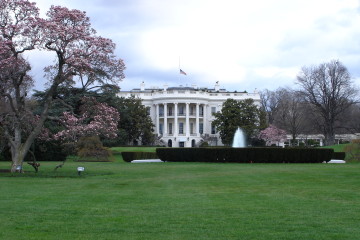What’s Going on with Honeybees
Since the mid-1990s, bee colonies have been collapsing at alarming rates. The rate of collapse has dramatically increased since the EPA allowed the use of neonicotinoids, also known as neonics, to be on the market in the mid-2000s.
These insecticides are often sprayed directly to the seeds. Studies have shown that plants absorb the insecticides as they grow and the chemicals remain in the pollen and nectar.
If the seeds aren’t sprayed with the insecticide, the plants are directly sprayed with the pesticides. Approximately 90 percent of the neonicotinoids can be found in the soil near the plants and other surrounding habitats. Though Colony Collapse Disorder isn’t caused solely by the use of neonicotinoids, many studies show it is a very large factor.
Whether we like them or not, bees are an essential part of our ecosystem. They pollinate approximately 75 percent of the fruit, nuts, and vegetables we eat. Aside from creating a food shortage, without bees people would be lacking many of the nutrients that are essential in a healthy diet.
Manual pollination is possible; however, it is very time consuming. The time consumption would cause food prices to spike drastically.
According to the USDA, Maryland beekeepers lost 61 percent of their honeybee populations last year. That is a staggering loss. The Maryland House and Senate recently passed the Maryland Pollinator Protection Act. This act will eliminate consumer use of neonicotinoids.
Because Maryland’s bee population has drastically declined, the bill gained a lot of support from the public. If Governor Hogan passes the bill, Maryland will be the first state to protect honeybees statewide.
However, it is only putting a partial ban on the use of neonicotinoids. Groups that have been trained to use the pesticides properly, like farmers, will still be able to use the products. Many believe that consumers using the pesticides in their home garden are much more likely to use the products much more liberally.
Aside from not using products like Round-Up, there are many things we can do to help honeybees.
Though it’s not financially feasible for everyone, eating organic produce benefits bees. Organic farmers don’t rely on pesticides to grow their crops, so the pollinators aren’t exposed to harmful chemicals.
Many people plant their own gardens, so beginning an organic garden is important. There are many ways to eliminate garden pests without the use of chemicals. Aside from planting a garden, many flowers and shrubs are bee-friendly.
If everyone takes the right precautions, saving the bee population will be possible. Though they are tiny, they are very important.



